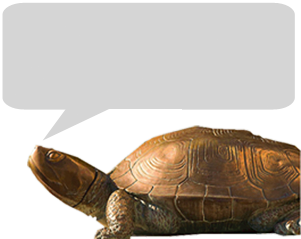UMD-Led Study Reveals Upsides & Downsides to the "Loosening" of America
UMD-Led Study Reveals Upsides & Downsides to the "Loosening" of America
The United States is considerably “looser” today—more tolerant, open-minded and expressive—than it was 200 years ago, but that trend has resulted in certain societal tradeoffs, finds new joint research from the University of Maryland and the University of North Carolina at Chapel Hill.
In a study published January 28 in Nature Human Behavior, led by Distinguished UMD Professor Michele Gelfand and UNC-Chapel Hill’s Joshua Jackson, researchers tracked changes in American culture from 1800-2000 by monitoring language in published text.
Using a computer science algorithm to map words appearing in the Google News dataset, the research team established lists of words related to rule following (e.g. restrain, prevent, comply) and rule aversion (e.g. allow, freedom, choose). They then tracked how frequently people used these words through an analysis of Google Books—a repository of more than 200 billion books published between 1800 and the present.
Researchers discovered that books contained more rule-aversion words and fewer rule-following words over this time period, suggesting American culture as a whole was loosening the strength of social norms.
“We were excited to see that the linguistic trends we identified in books mirrored other measures we collected on societal shifts,” said Gelfand. “For instance, the number of laws passed by Congress, Supreme Court cases heard, and religiously affiliated individuals dropped significantly between 1800 and 2000, while profanity in television and film increased.”
Researchers then explored the consequences and potential trade-offs, as past research by Gelfand has shown that tight, rule-abiding nations and states tend to have fewer self-control failures—such as drug abuse and alcoholism—but also fewer markers of creativity and openness, like patents, trademarks and artists. Researchers collected data on four yearly measures of societal creativity: feature films produced, patent applications, trademark applications and proportion of unconventional baby names. They also collected data on four yearly measures of societal order: crime rate, number of children in school, adolescent pregnancies and household debt.
Their results showed that years in which people used high levels of rule-aversive language had the highest rates of patent and trademark application, unconventional names and feature film production, but also the highest rates of high-school dropouts, adolescent pregnancies and household debt.
“Our findings demonstrate how changes in culture over time can have far-reaching implications for how people spend their money, generate new ideas and even name their children,” said Jackson. “That’s why it’s important to consider changes in single societies over time to understand how culture shapes behavior and psychology.”
Gelfand has spent two decades researching the tightness and looseness of cultures and recently wrote the book, “Rule Makers, Rule Breakers: How Tight and Loose Cultures Wire our World.” However, this marks the first time she has been able to examine how a single culture changes over time.
“It’s important to understand why differences in tightness and looseness arise and its consequences for groups, but we also need to be aware of how it is changing,” Gelfand said. “While the US has loosened over the last 200 years, we weren’t able to look at more recent trends. It may be changing now in the other direction given societal disruptions and the political climate.”
In addition to monitoring future cultural shifts in the United States, the research team hopes to employ methods used in this study to look at changes in other countries.
Along with Gelfand and Jackson, the research team included Sohan De, a graduate student in the Department of Computer Science at UMD, and UMD alumna Amber Fox (PSYC, ’16) from Uniformed Services University. The research was supported by the National Science Foundation and the Humboldt Foundation.
This article originally appeared on UMD Right Now.
January 31, 2019
Prev Next
Connect
Did You Know

UMD is the only major public research university inside the Washington, DC beltway!!
